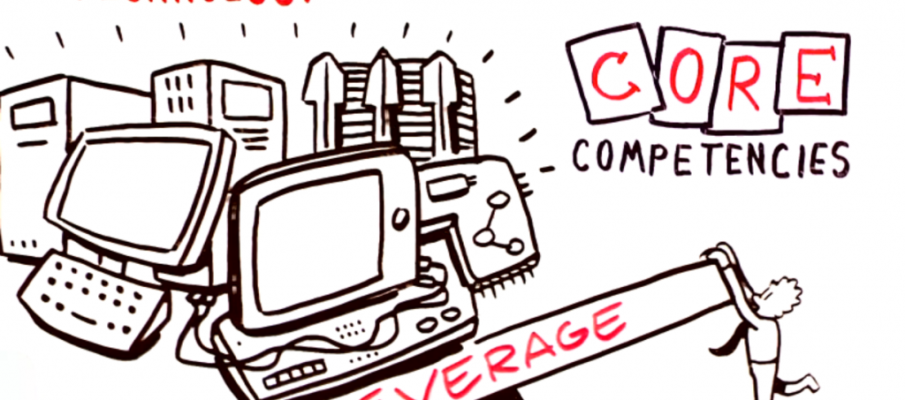iPhone has seizures
squeak of dry erase marker
coffee has gone cold
Doodle & Haiku


iPhone has seizures
squeak of dry erase marker
coffee has gone cold

Lately, I’ve been thinking about netiquette. And I am not talking about taking turns while bottom trawling. I am talking about your internet manners. Your “no elbows on the table” rules for the internet at work. Your “sneeze into your elbow, not your hand” protocol for your business emails. Maybe I am in withdrawal from being a grant administrator, and reading and following all those rules. I want something like an Emily Post for the internet. So after searching around, I found some information that seemed specific to Hopkins at the following site:
http://www.ronberk.com/articles/2011_attitudes.pdf
Summary
Here’s a recap of the top 12 “Be-Attitudes”:
1. Be sure to use appropriate professional language.
2. Be careful to use proper grammar and spelling.
3. Be brief and precise in the “Subject” line.
4. Be honest and truthful.
5. Be respectful of copyrights.
6. Be sure to use an appropriate signature line.
7. Be responsive to requests in a timely fashion.
8. Be cautious about when to click “reply to all.”
9. Be thoughtful to not use all caps or all lower case.
10. Be respectful to not flame.
11. Be considerate to not multi-post, cross-post, off-topic post, or hijack a discussion thread.
12. Be careful to not forward inappropriate jokes, cartoons, photos, chain letters, spam, etc.
What was most interesting to me in the above, is that there is absolutely no mention about how to deal with unanswered emails, a source of angst for me. That search for rules about unanswered emails led me to several more articles; my favorite is referenced below:
http://www.leadingvirtually.com/dont-let-no-email-response-get-the-better-of-you/
Some points that stood out from the article:
Using the Enron email dataset, the authors found that the average time to respond to an email was about 29 hours. If we assume that this figure applies elsewhere too, then there’s a 80% chance that your email will get responded to within 29 hrs. Even if it does not get responded to within this time, there’s still about a 17% chance that your email gets will get responded to within another 11 days. After that, assume that the silence is for good.
So, first off, let me adjust my reality for complex email responses to 11 days. And second, “assume the silence is for good” means, I think, that the responder disagrees and doesn’t want to embarrass you, and/or the responder wanted to make a careful response and failed to do so within a timely manner, so he or she is now embarrassed to bring up the subject. To revise the quote, “No news is [not necessarily] good news, and so what?” I won’t take it personally anymore.
You might argue that the Enron data set researched above is from 2009! This is a very valid point. Indeed things have evolved since then… and they are still evolving. Maybe I need to understand that certain rules are just more fluid in today’s communication arena. Maybe what I need to examine is why precisely I need these rules? Is it to be “right?” To raise my relative “status?” Is it to judge or blame? If that’s the case, then what a relief to evolve with the rest of humanity.

It’s so important to treat others with respect – to behave in a way that demonstrates our regard for others – and to listen, knowing that they might be right and we might be wrong. We need to treat people with dignity, just as we would like to be treated.
To show respect for another person, you need to recognize that the person has value. You need to acknowledge that the person’s thoughts and ideas are valid and important. You can demonstrate your respect by doing the following:
Remember, being respectful involves treating people with dignity, recognizing the validity and worth of other people’s ideas, and keeping an open mind. When people treat each other with respect, it encourages open communication and cooperation. It creates a warm, supportive environment in which everyone can succeed and reach their fullest potential.

Civility means showing people consideration, appreciation, generosity, and trust. It involves being aware of the people around you, and acting with courtesy and kindness.
Dr. P. M. Forni is a professor at Johns Hopkins University, the director of The Civility Initiative at Johns Hopkins, and the author of two highly acclaimed books on civility. In his book, “Choosing Civility,” Dr. Forni presents 25 rules of considerate conduct. We asked Dr. Forni to identify the five rules that he thought were the most important. His picks are listed below.
Overall, being civil means thinking about the comfort and happiness of others. People who are civil think about the people around them and this helps them make the right decisions about how to behave.
Forni, P. M. (2002). Choosing civility. New York, NY: St. Martin’s Press.

We often approach a new project with a group brainstorming session, an opportunity to pool our team members to chart a common trajectory towards completion. Studies show, however, that such collaboration can be detrimental to the best outcome. This article by renowned author, Ron Friedman, Ph.D., outlines the potential pitfalls of collaborations: they may breed false confidence, introduce pressures to conform, and promote laziness. It will help you to discover the art of successful collaborations. Illustration by Oscar Ramos Orozco.

Conflict is a part of life. The ability to resolve a conflict is an essential interpersonal skill.
There are different approaches to conflict resolution. Many believe that there are five options: avoidance, accommodation, competition, compromise, and collaboration.
There is no approach that’s best. It really depends on the type of conflict that you’re experiencing. Different approaches work well in different situations. But understanding yourself and knowing more about the different approaches to conflict resolution will help you to handle conflict more effectively. It will help you to think reasonably and flexibly, and choose the approach that best fits the situation.
Try taking this online assessment to discover which approach you favor, and to learn more about all five options. You might also consider taking this assessment with a trusted colleague! It could spark an interesting conversation, and help you to determine whether you see yourself the same way that others see you.

brown bag lunch meeting
trying to chew quietly
crumbs on agenda

Weird Al’s new song is a corporate mission statement made up entirely of buzzwords. I’m sure you’ve heard many of these phrases before! I hope you enjoy this as much as I did.

quiet rebellion
push away wordly demands
hit the snooze button

“I am scared to death of public speaking!”
“I wish we, as a department, could take a team building seminar. These outside vendor workshops are too expensive.”
“I was promoted to a supervisory position! What information should I know as a new supervisor?”
Do these statements sound familiar to you? If so, you’re not alone.
Every year at the Benefits Fair, it amazes me how many people are not familiar with the Office of Talent Management and Organization Development, specifically the Learning and Development Programs. The Learning and Development (L&D) office offers a variety of developmental training for JHU’s full- and part-time faculty and staff – and it’s “free” as long as you register and attend! These courses are funded through the Benefits Office and they are part of your benefits package.
To answer your questions above, some of the sessions available to you are “Speak Like a Pro,” individualized “Team Building” sessions, and a variety of supervisory courses through the JHU Supervisory Training Program. For more information on these sessions, simply log in to myLearning with your JHED ID and password, and explore all of your options!